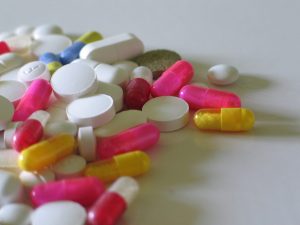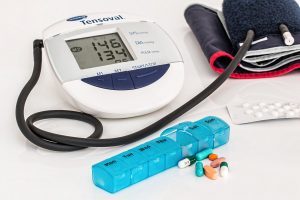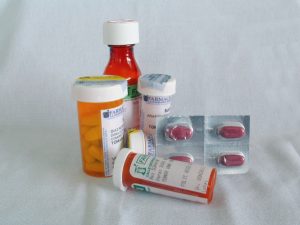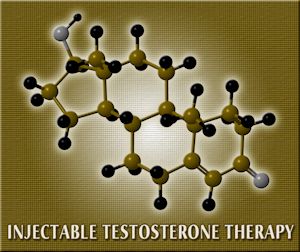Video Link: https://vimeo.com/293544527
Video Download: Click Here To Download Video
Video Stream: Click Here To Stream Video
Video Link: https://vimeo.com/293545056
Video Download: Click Here To Download Video
Video Stream: Click Here To Stream Video
 As men grow older, maintaining sexual health and performance is near the top of most men's minds. As men enter their forties and beyond, they start to become more susceptible to a number of different health conditions that can impact sexual function, including Testosterone Deficiency and Diabetes.
As men grow older, maintaining sexual health and performance is near the top of most men's minds. As men enter their forties and beyond, they start to become more susceptible to a number of different health conditions that can impact sexual function, including Testosterone Deficiency and Diabetes.
Did you know, however, that there are actually many medications that can either inhibit your libido, inhibit your sexual function, or both?
Men don't realize how common those medications are the root cause of erectile dysfunction. In fact, research suggests that sexual dysfunction is the result of the drugs taken by the male patient in as many as 25% of erectile dysfunction cases.
We all know how important sex is to a happy and healthy relationship.
If you are having trouble generating interest in your partner, or if you can't seal the deal, you should talk to a physician and find out the root cause of your dysfunction.
In many cases, erectile dysfunction is a sign of deeper, underlying problems, and it is possible that, in the case that your medications are altering your sexual performance, there are steps that you can take to restore your sexual health. In some cases changing drugs is all that's necessary. In other cases, erectile dysfunction could be a sign that you need further treatment.
Don't be afraid to talk to your doctor about any sexual issues that you may be experiencing. Your doctor is trained to consider all of your health issues with care and consideration, and if you are having trouble in your sex life, your doctor may be the professional single-most equipped to help you overcome your erectile dysfunction or lack of libido so that you can restore your intimacy with your partner.
Even if drugs aren't causing your erectile dysfunction, it benefits you, in the long run, to rule out your medications as the cause of your sexual distress before you turn to erectile dysfunction medications such as Viagra or Levitra, or Testosterone Hormone Therapies such as Testosterone Patches, Creams, and Injections.
The following are some examples of medications that can contribute significantly to sexual distress in some patients. Of course, if you are taking any of these treatments, it is important to talk to your doctor and get his or her consent before you quit taking any medication.
Usually, your doctor can alter your medication regimen in order to restore your sexual function, while still treating any underlying conditions that may be afflicting your health and wellness.
 Fibrate and Statin Medications Can Inhibit Sex Drive and Cause Erectile Dysfunction
Fibrate and Statin Medications Can Inhibit Sex Drive and Cause Erectile Dysfunction
Fibrates and Statins are prescribed in order to treat patients that have unhealthy cholesterol levels and need help controlling their cholesterol in order to protect and safeguard their heart and cardiovascular system.
The problem with suppressing cholesterol activity, however, is that your body won't produce sex hormones as efficiently.
Although most of the time we hear about the bad things associated with cholesterol, especially LDL Cholesterol, cholesterol is also the core component of all of the sexual hormones, including Testosterone.
Without sufficient Testosterone, you won't be able to sufficiently maintain an erection, and your libido, as well as the pleasure that you derive from sexual activity, will diminish severely.
Another relatively common symptom of Statins, in particular, is that it can cause muscle atrophy, which leads to both joint pain and weakness.
As of 2002, there is undeniable clinical evidence that both fibrates and statins can lead directly to erectile dysfunction. A study published in 2009 further discovered that statins reduce the ability of both sexes to experience full sexual pleasure, including orgasm.
Interestingly enough, the suppression of sexual pleasure correlated strongly with LDL Cholesterol Levels themselves.
How Can Patients Avoid Statins and Fibrates While Still Promoting Healthy Cholesterol Levels?
There are millions of men and women across the country that take fibrates and statins for coronary artery disease.
For patients that don't have exceedingly high cholesterol levels, it may be possible to avoid fibrate and statin drugs altogether if the patient adheres to a healthy diet regimen and supplements their diet with high doses of Vitamin B6, Folic Acid, and Sublingual B12 each day.
For patients with somewhat high cholesterol, it is recommended to take 200 milligrams of B6, 800 micrograms of Folic Acid, and 1 milligram of B12 each day.
 Blood Pressure Medications Suppress Libido and Sexual Function in Both Sexes
Blood Pressure Medications Suppress Libido and Sexual Function in Both Sexes
Blood pressure treatments are important for patients with hypertension and high blood pressure because they help keep blood circulating effectively throughout the body without putting too much strain on the heart. For patients with atherosclerosis, heart disease, or other diseases that impact the heart and blood flow, these treatments can benefit patients significantly.
Unfortunately, any drug that impacts blood pressure can also impact sexual health, reducing the pleasure associated with sexual activity as well as the ability for both sexes to be sexually ready for sex.
In particular, blood pressure medications can inhibit both erections and orgasms. For women, vasodilation can lead to issues reaching orgasm, as well as a lack of libido and issues becoming fully lubricated for sex.
While it is true that every medication that affects blood pressure can inhibit sexual function, there are three classes of these treatments which impact sex drive and function the most—alpha-blockers, beta-blockers, and diuretics.
The reason why diuretics impede sexual function is not only the result of the way that they alter blood pressure but the way that they alter zinc levels in the body. Zinc is an integral component of Testosterone.
Beta-blockers, on the other hand, alter sexual function in three different ways—they suppress Testosterone activity, they inhibit nerve signals which control arousal, and they depress and sedate the patient.
What Can Patients that Take Blood Pressure Medications Do to Increase Sex Drive?
There are a variety of blood pressure medications that can effectively treat hypertension, and each has the capacity to inhibit sex drive and function in its own way. If the drug that you are currently taking is producing unwanted sexual side-effects, ask your physician if you can switch treatments.
For example, benzothiazepine calcium channel blockers are the least likely to lead to sexual dysfunction of all of the hypertension medications available today.
Antidepressants Suppress Sexual Function
There are a lot of reasons why patients take antidepressants, although the name would suggest that depression is the only reason.
Other treatments for which antidepressants have been found effective are chronic pain, OCD, eating disorders, and anxiety disorders such as General Anxiety Disorder. Antidepressants can even be used to treat menstrual cramping and to help patients quit smoking.
There are a number of antidepressants which all treat these conditions via different pathways. Common antidepressants that are used now or have been used in the past are Selective Serotonin Re-Uptake Inhibitors (SSRIs), MAO-A Inhibitors, tricyclics, lithium, and dopamine blockers.
How Do Antidepressants Lead to Sexual Issues?
Antidepressants are powerful medications that alter the way that the brain responds to chemicals associated with neurological function, including norepinephrine, serotonin, and acetylcholine. Antidepressants increase the activity of serotonin in the brain but can impede serotonin activity in other parts of the body.
The way that these three hormones are affected by Antidepressants can lead directly to erectile dysfunction and loss of libido.
For example, one Antidepressant, known as clomipramine, reduces sex drive in eighteen percent of patients and stops male ejaculation in forty percent of patients. Fifteen percent of patients that take this Antidepressant experience full impotence.
 What Can Patients on Antidepressants Do to Improve Sexual Function?
What Can Patients on Antidepressants Do to Improve Sexual Function?
Often in the case of Antidepressants, sexual function can be restored or vastly improved simply by adjusting the dose of the medication.
Some patients may benefit most by changing from drug treatment to another form of therapy such as talk therapy. Because there are a wide variety of Antidepressants, many patients choose to simply switch medications in order to restore sexual function.
Antipsychotics, Sex Drive, and Sexual Function
Antipsychotics are powerful medications that are intended to treat serious psychological afflictions such as bipolar disorder and schizophrenia. Antipsychotics are not indicated for depression and irritability but are sometimes provided off-label for such psychological issues.
How do Antipsychotics Lead to Sexual Issues?
Whereas Antidepressants work by increasing Serotonin levels in the brain, Antipsychotics work by suppressing the production of Dopamine, which is the most important pleasure and reward hormone, and also plays a big role in the way that the patient responds emotionally to stimuli.
One of the primary reasons why Antipsychotics cause sexual dysfunction is because they encourage the production of prolactin in the brain, which both makes it harder to have an orgasm and can inhibit sex drive.
Similar to Antidepressants, Antipsychotics also suppress Acetylcholine activity, which is strongly associated with sexual dysfunction.
It can sometimes be difficult to figure out the root cause of sexual dysfunction in patients that take Antipsychotics because psychological conditions that lead to the prescription of Antipsychotics often cause psychological issues as well.
Antipsychotics have a much higher incidence of sexual dysfunction than Antidepressants. Research shows that anywhere from 45% to 90% of patients experience at least some level of sexual malfunction.
What Can Patients Taking Antipsychotics do to Restore Sexual Ability and Desire?
Like Antidepressants, sometimes sexual dysfunction is a sign that the patient is taking too much medication and would benefit from a lower dose. Also, different Antipsychotics control dopamine through different mechanisms, so changing drugs can help.
For patients that have been prescribed Antipsychotics for irritation or depression associated with Alzheimer's, it is important to understand that when doctors prescribe Antipsychotics off-label for this purpose, they put the patient at significant risk of death for patients that suffer from dementia.
Benzodiazepines Can Reduce Sexual Function
Benzodiazepines are used for a number of purposes, including the treatment of muscle spasms, irritation, insomnia, and anxiety.
They are also used in order to prevent patients from experiencing seizures. These drugs are frequently referred to simply as tranquilizers.
How do Benzodiazepines Lead to Sexual Malfunction
As you may have guessed, Benzodiazepines primarily impact sexual function because they suppress the body's ability to react to stimuli through their tranquilizing effect. They reduce sensation as well as excitement and libido.
There is also evidence that Benzodiazepines can suppress the body's production of Testosterone, which can prevent both sexes from getting the most out of sex. The sexual issues most highly correlated with Benzodiazepines are trouble climaxing, Erectile Dysfunction, painful or uncomfortable sex, and reduced pleasure from orgasm.
What Can Patients that Take Benzodiazepines do to Improve Sexual Health?
Some patients have been prescribed Benzodiazepines when they could benefit just as well from other treatments which don't require the powerful psychological drug, especially those that have issues with mild insomnia or anxiety.
For example, for many patients, Melatonin is all that is needed in order to restore normal and healthy sleeping patterns. Also, for patients with more severe anxiety issues, Antidepressants or other forms of treatment may also be effective without contributing to sexual dysfunction.
 H2 Blockers Can Suppress Sexual Drive and Function
H2 Blockers Can Suppress Sexual Drive and Function
H2 Blockers are medications that are used to treat digestive disorders, including acid reflux, stomach ulcers, and other stomach and intestinal conditions.
How Do H2 Blockers Contribute to Sexual Dysfunction?
Patients that take H2 Blockers should be incredibly careful because taking the drugs for an extended period of time can lead to both impotence and breast enlargement in males.
Different H2 Blockers are associated with different levels of sexual dysfunction. For example, Tagamet (cimetidine) is the H2 blocker that is most powerfully associated with sexual issues, including Erectile Dysfunction, reduced sex, drive, and suppressed sperm count.
Other H2 Blockers such as Axid (nizatidine), Pepcid (famotidine), and Zantac (ranitidine) also have these risks, but they are not as severe.
What Can You Do if You Take H2 Blockers to Improve Sex Drive and Function?
H2 Blockers are the most effective means to treat many gastrointestinal conditions such as acid reflux. There are some things that you can do to improve your sexual function while taking these medications, however.
For example, making the effort to sleep better and eat better may be all that it takes to get your sex drive going again. Taking Melatonin at night to balance out your circadian rhythm and hormone production can also be highly beneficial.
Anticonvulsants Can Lead to Sexual Dysfunction
Anticonvulsants are primarily prescribed to patients that suffer from epilepsy in order to prevent seizures. They can also be used for migraines, nerve pain, and other forms of chronic pain.
One off-label use of Anti-Convulsants is for patients that suffer from Bipolar Disorder, although this use has not been approved by the Food and Drug Administration.
How Can Anticonvulsants lead to Erectile Dysfunction and Loss of Libido?
Like many other medications, Anticonvulsants can directly contribute to Testosterone Deficiency, and can suppress sexual arousal in both sexes. In addition to this, Anticonvulsants can also inhibit the ability of the patient to achieve orgasm.
What Can Patients do that have Sexual Issues Related to Their Use of Anticonvulsants?
In the recent past, the primary Anticonvulsants available by prescription were Dilantin (phenytoin) and Tegretol (carbamazepine).
Newer medications provide the same benefits with a lower risk of sexual side-effects, including Topamax (topiramate) and Neurontin (gabapentin). If you still take one of the older Anticonvulsants, you should talk to your doctor about changing treatments.
 Testosterone Therapy Could Improve Your Sexual Function and Health if You Have Low-T
Testosterone Therapy Could Improve Your Sexual Function and Health if You Have Low-T
Of course, many patients suffer from Testosterone Deficiency for reasons other than the medications they use. Also, many patients are forced to take drugs that suppress their sexual function for health reasons.
For these patients, Low-T Treatments such as Testosterone Creams, Patches, and Injections can help enhance sexual function in spite of these issues and help patients engage in more passionate sexual activity. Many patients may also benefit from Erectile Dysfunction medications such as Levitra, Viagra, and Cialis.
If you are suffering from Erectile Dysfunction or Low-T, there is no reason to resign yourself to the condition. Talk to your doctor about your options!
Contact Us Today For A Free Consultation

- Adverse Effects of Testosterone Therapy in Adult Men: A Systematic Review and Meta-Analysis [Last Updated On: July 2nd, 2024] [Originally Added On: June 4th, 2010]
- Low Testosterone Levels, Foods That Increase Testosterone Levels wwwSelf-Improvement-Bible.com [Last Updated On: November 12th, 2023] [Originally Added On: May 30th, 2011]
- Low Testosterone in Men: The Next Big Thing in Medicine! - Abraham Morgentaler, MD [Last Updated On: May 7th, 2023] [Originally Added On: June 3rd, 2011]
- How To Determine Testosterone Levels By Looking At Your Ring Finger [Last Updated On: December 7th, 2017] [Originally Added On: June 30th, 2011]
- Prolab Horny Goat Weed Testosterone Booster Supplement Review [Last Updated On: November 23rd, 2023] [Originally Added On: July 19th, 2011]
- The Healthy Skeptic: Products make testosterone claims [Last Updated On: August 13th, 2024] [Originally Added On: September 11th, 2011]
- How To Naturally Increase Testosterone [Last Updated On: November 21st, 2023] [Originally Added On: September 28th, 2011]
- Testosterone Production - Video [Last Updated On: November 25th, 2024] [Originally Added On: November 20th, 2011]
- Testosterone makes us less cooperative and more egocentric, study finds [Last Updated On: January 23rd, 2018] [Originally Added On: February 1st, 2012]
- Testosterone makes us less cooperative and more egocentric [Last Updated On: January 24th, 2018] [Originally Added On: February 1st, 2012]
- Too much testosterone makes for bad decisions, tests show [Last Updated On: April 30th, 2025] [Originally Added On: February 1st, 2012]
- Today in Research: Testosterone's Negative Effects; Diet Soda Death [Last Updated On: January 2nd, 2018] [Originally Added On: February 2nd, 2012]
- Testosterone drives ego, trips cooperation [Last Updated On: December 2nd, 2017] [Originally Added On: February 4th, 2012]
- FDA approves BioSante/Teva's testosterone gel [Last Updated On: April 28th, 2025] [Originally Added On: February 15th, 2012]
- 'Manly' Fingers Make For Strong Jawline in Young Boys [Last Updated On: December 1st, 2017] [Originally Added On: February 15th, 2012]
- Teva, BioSante Win U.S. Approval for Testosterone Therapy [Last Updated On: December 10th, 2017] [Originally Added On: February 15th, 2012]
- BioSante Gains on Approval of Testosterone Gel: Chicago Mover [Last Updated On: January 8th, 2018] [Originally Added On: February 16th, 2012]
- BioSante soars following drug approval from FDA [Last Updated On: December 26th, 2017] [Originally Added On: February 16th, 2012]
- Antibodies, Not Hard Bodies: The Real Reason Women Drool Over Brad Pitt [Last Updated On: December 24th, 2017] [Originally Added On: February 21st, 2012]
- Almark Publishing Releases Book From Mark Rosenberg, M.D. Revealing Natural Discoveries Associated With Low ... [Last Updated On: May 3rd, 2025] [Originally Added On: February 28th, 2012]
- Testosterone Replacement Clinic Comes to Kansas City with Potential to Help Thousands of Men [Last Updated On: May 2nd, 2025] [Originally Added On: March 1st, 2012]
- Study examines the relative roles of testosterone and its metabolite, dihydrotestosterone in men [Last Updated On: December 2nd, 2017] [Originally Added On: March 7th, 2012]
- The Role of 5{alpha}-Reductase Inhibition in Men Receiving Testosterone Replacement Therapy [Editorial] [Last Updated On: December 21st, 2017] [Originally Added On: March 7th, 2012]
- Effect of Testosterone Supplementation With and Without a Dual 5{alpha}-Reductase Inhibitor on Fat-Free Mass in Men ... [Last Updated On: January 3rd, 2018] [Originally Added On: March 7th, 2012]
- Why We Like Men Who Can Keep Their Cool [Last Updated On: December 30th, 2017] [Originally Added On: March 7th, 2012]
- Testosterone And Heart Health [Last Updated On: May 1st, 2025] [Originally Added On: March 10th, 2012]
- Your Life on Testosterone: Overly Sure of Yourself, Unwilling to Listen [Last Updated On: November 25th, 2018] [Originally Added On: March 15th, 2012]
- Mayo Clinic-TGen study role testosterone may play in triple negative breast cancer [Last Updated On: December 8th, 2017] [Originally Added On: March 23rd, 2012]
- A dose of testosterone might not cure what ails you [Last Updated On: January 23rd, 2018] [Originally Added On: March 25th, 2012]
- Green tea could aid athletes hide testosterone doping [Last Updated On: December 16th, 2017] [Originally Added On: March 25th, 2012]
- TGen Study Role Testosterone May Play in Triple Negative Breast Cancer [Last Updated On: December 6th, 2017] [Originally Added On: March 26th, 2012]
- Testosterone low, but responsive to competition, in Amazonian tribe [Last Updated On: January 23rd, 2018] [Originally Added On: March 28th, 2012]
- Competition-linked bursts of testosterone are fundamental aspect of human biology, study of Amazonian tribe suggests [Last Updated On: December 25th, 2017] [Originally Added On: March 28th, 2012]
- Playing football boosts testosterone levels by 30 percent! [Last Updated On: February 4th, 2024] [Originally Added On: March 28th, 2012]
- Testosterone low, but responsive to competition, in Amazonian tribe -- with slideshow [Last Updated On: December 9th, 2017] [Originally Added On: March 28th, 2012]
- The benefits of testosterone pellet therapy [Last Updated On: January 24th, 2018] [Originally Added On: March 29th, 2012]
- Low testosterone levels cause health woes [Last Updated On: November 25th, 2018] [Originally Added On: March 30th, 2012]
- Heart Failure Patients Getting Relief from Testosterone Supplements [Last Updated On: May 5th, 2025] [Originally Added On: April 21st, 2012]
- Study Finds Fatherhood Suppresses Testosterone [Last Updated On: May 4th, 2025] [Originally Added On: May 3rd, 2012]
- Low testosterone levels could raise diabetes risk for men [Last Updated On: January 26th, 2018] [Originally Added On: May 5th, 2012]
- Why low testosterone may increase your risk of diabetes [Last Updated On: November 25th, 2024] [Originally Added On: May 5th, 2012]
- Diabetes link to low testosterone [Last Updated On: November 25th, 2024] [Originally Added On: May 5th, 2012]
- Testosterone Linked to Weight Loss in Obese Men [Last Updated On: January 2nd, 2018] [Originally Added On: May 11th, 2012]
- Testosterone may help weight loss [Last Updated On: November 25th, 2024] [Originally Added On: May 11th, 2012]
- Testosterone-fuelled infantile males might be a product of Mom's behaviour [Last Updated On: December 25th, 2017] [Originally Added On: May 11th, 2012]
- Testosterone-fueled infantile males might be a product of Mom's behavior [Last Updated On: January 6th, 2018] [Originally Added On: May 11th, 2012]
- Testosterone supplements may help obese men lose weight [Last Updated On: January 5th, 2018] [Originally Added On: May 11th, 2012]
- Testosterone supplements 'can help men lose their middle-aged spread' [Last Updated On: November 25th, 2024] [Originally Added On: May 12th, 2012]
- Some doctors question safety of testosterone replacement therapy [Last Updated On: January 20th, 2018] [Originally Added On: May 15th, 2012]
- Health Canada Approves New Testosterone Topical Solution for Men [Last Updated On: May 15th, 2025] [Originally Added On: May 15th, 2012]
- Environment trumps genes in testosterone levels, study finds [Last Updated On: May 8th, 2025] [Originally Added On: May 15th, 2012]
- Global Testosterone Replacement Therapy (TRT) Industry [Last Updated On: May 7th, 2025] [Originally Added On: May 21st, 2012]
- Testosterone Fuels Boom, Swindler Sows Panic: Top Business Books [Last Updated On: January 13th, 2018] [Originally Added On: June 2nd, 2012]
- Increase in testosterone drug use [Last Updated On: April 12th, 2018] [Originally Added On: June 4th, 2012]
- Testosterone Promotes Agression Automatically [Last Updated On: January 29th, 2018] [Originally Added On: June 9th, 2012]
- Testosterone shown to help sexually frustrated women [Last Updated On: January 27th, 2018] [Originally Added On: June 9th, 2012]
- Research and Markets: Testosterone Replacement Therapy (TRT) - Global Strategic Business Report [Last Updated On: December 23rd, 2017] [Originally Added On: June 12th, 2012]
- Proposed testosterone testing of some female olympians challenged by Stanford scientists [Last Updated On: January 30th, 2018] [Originally Added On: June 14th, 2012]
- Testosterone Makes Bosses Into Jerks, Says Paul Zak [Last Updated On: January 8th, 2018] [Originally Added On: June 14th, 2012]
- Testosterone Therapy: A Misguided Approach to Erectile Dysfunction (ED) [Last Updated On: May 10th, 2025] [Originally Added On: June 20th, 2012]
- New drugs, new ways to target androgens in prostate cancer therapy [Last Updated On: January 8th, 2018] [Originally Added On: June 20th, 2012]
- Long-term testosterone treatment for men results in reduced weight and waist size [Last Updated On: January 19th, 2018] [Originally Added On: June 23rd, 2012]
- Declining testosterone levels in men not part of normal aging, study finds [Last Updated On: December 27th, 2017] [Originally Added On: June 23rd, 2012]
- Low testosterone not normal part of aging [Last Updated On: December 22nd, 2017] [Originally Added On: June 25th, 2012]
- Testosterone Does Not Necessarily Wane With Age [Last Updated On: December 6th, 2017] [Originally Added On: June 25th, 2012]
- Overweight men can boost low testosterone levels by losing weight [Last Updated On: December 10th, 2017] [Originally Added On: June 25th, 2012]
- Testosterone-replacement therapy improves symptoms of metabolic syndrome [Last Updated On: January 14th, 2018] [Originally Added On: June 26th, 2012]
- Testosterone therapy takes off pounds [Last Updated On: December 11th, 2017] [Originally Added On: June 26th, 2012]
- Weight loss may boost men's testosterone [Last Updated On: May 9th, 2025] [Originally Added On: June 27th, 2012]
- Low Testosterone? Study finds age may not be to blame [Last Updated On: May 12th, 2025] [Originally Added On: July 1st, 2012]
- Do you have low testosterone? [Last Updated On: December 15th, 2017] [Originally Added On: July 8th, 2012]
- Wall Streeters Buying Testosterone for an Edge [Last Updated On: May 11th, 2025] [Originally Added On: July 12th, 2012]
- Beefy Wall Street Traders rub on testosterone [Last Updated On: February 20th, 2024] [Originally Added On: July 12th, 2012]
- Tale of two runners exposes flawed Olympic thinking [Last Updated On: December 23rd, 2024] [Originally Added On: July 19th, 2012]
- Genetic markers for testosterone and estrogen level regulation identified [Last Updated On: January 6th, 2018] [Originally Added On: July 20th, 2012]
- BUSM researchers identify genetic markers for testosterone, estrogen level regulation [Last Updated On: December 18th, 2017] [Originally Added On: July 20th, 2012]
- DRS. OZ AND ROIZEN: How to reap the benefits of normal testosterone levels [Last Updated On: December 23rd, 2024] [Originally Added On: July 21st, 2012]
- How Testosterone Drives History [Last Updated On: December 24th, 2024] [Originally Added On: July 22nd, 2012]
- Testosterone replacement is "fountain of youth" for men [Last Updated On: January 3rd, 2018] [Originally Added On: July 27th, 2012]
- Pill for low testosterone in men heads for phase II clinical trials [Last Updated On: December 31st, 2017] [Originally Added On: August 2nd, 2012]
Word Count: 2353




















